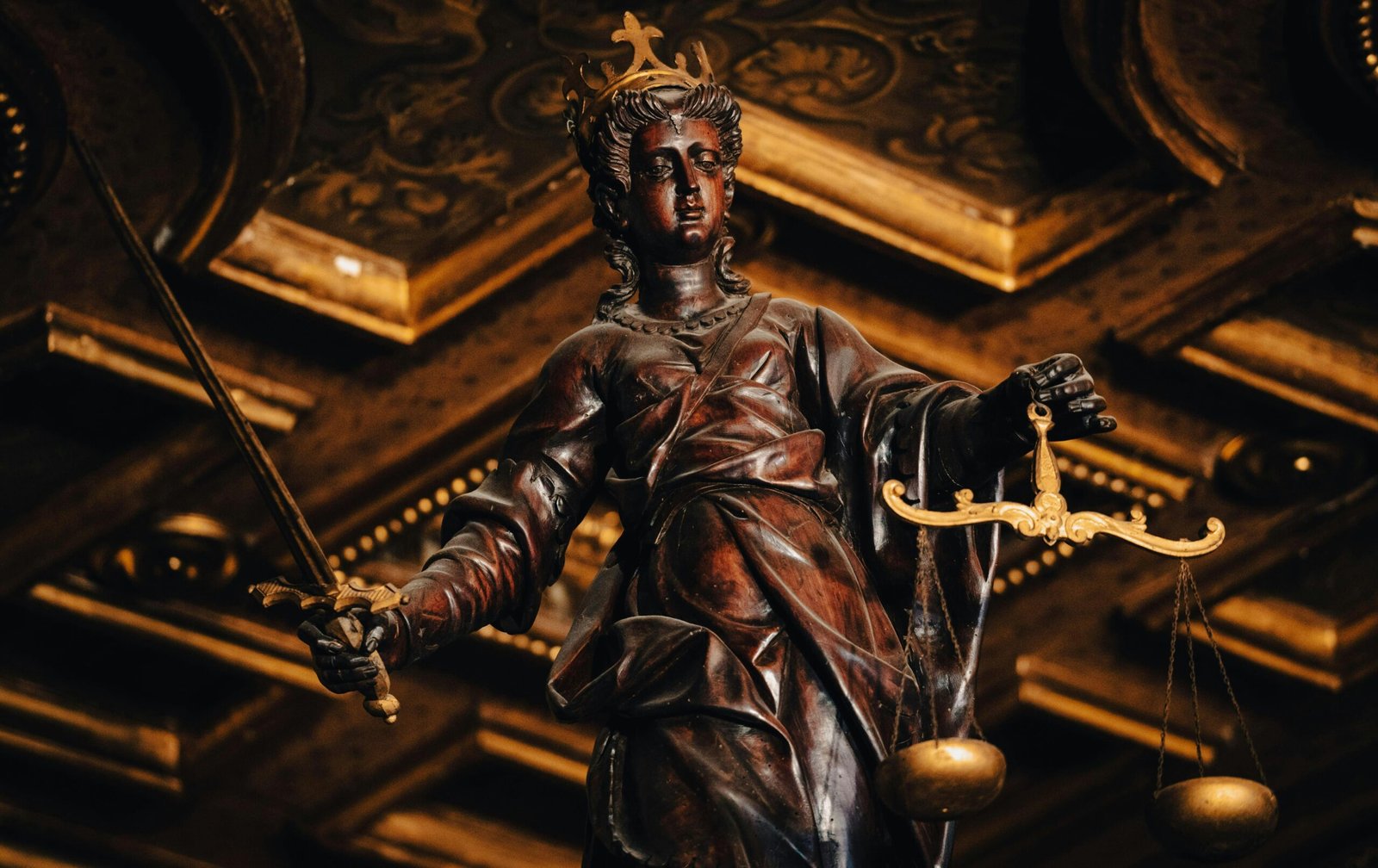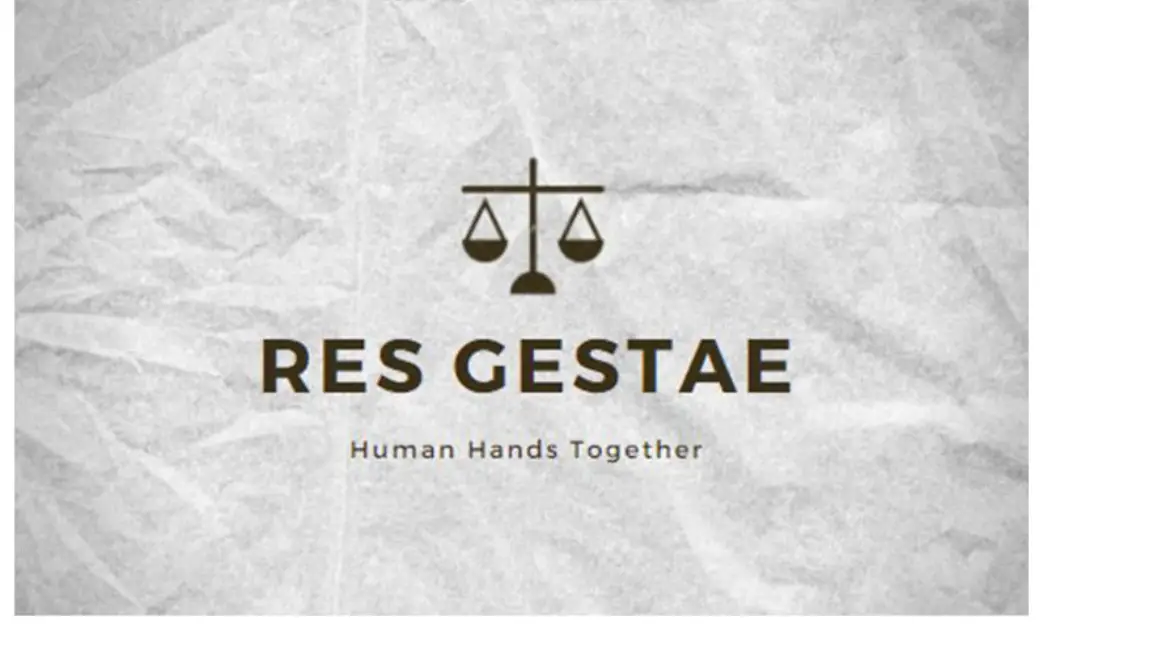
The doctrine of Res Gestae is a crucial exception to the rule against hearsay evidence in the realm of law, particularly within the field of evidence law. In legal contexts, the rule against hearsay generally prohibits the admission of statements made outside of court as evidence. However, Res Gestae allows for certain statements, even if made outside the court, to be admitted as evidence under specific circumstances. These statements are considered part of the events or actions in question and are deemed reliable and relevant to the case at hand.
Table of Contents
I. Understanding Res Gestae
Res Gestae, a Latin term meaning “things done” or “acts or statements made in the course of an event,” refers to statements or actions that are so closely connected to a particular event or transaction that they can be treated as evidence, even if they are considered hearsay in other circumstances. The principle behind Res Gestae is that these statements or actions are spontaneous, immediate, and relevant to the matter at hand, making them admissible in court.
Key Features of Res Gestae:
- Spontaneity: The statements or actions must be made spontaneously, without time for reflection, and immediately following the event.
- Relevance: The statements must be closely connected to the event or action in question.
- Witness to the Event: The person making the statement must be a direct witness to the event or act in question.
- Absence of Motive to Fabricate: The person making the statement must have no motive to fabricate or distort the truth.
II. Historical Background of the Res Gestae Doctrine
The doctrine of Res Gestae has its roots in common law and has been part of legal systems for centuries. It primarily evolved as a way to introduce certain statements into evidence that would otherwise be excluded due to hearsay rules. The doctrine has been formalized in various ways in different jurisdictions, particularly in the United States and India.
- Common Law Origins: The concept of Res Gestae was rooted in early common law, where courts allowed certain statements made in the course of a transaction or event to be admissible because they were considered reliable and trustworthy.
- Modern Jurisprudence: Over time, the doctrine evolved and became a widely accepted exception to hearsay rules, especially when the statement was made immediately after a significant event, like an accident, crime, or other event requiring legal examination.
III. Legal Framework: Res Gestae and Hearsay Evidence
In the legal context, hearsay evidence refers to an out-of-court statement presented for the truth of the matter asserted. The general rule is that hearsay is inadmissible, as it is seen as unreliable. However, the Res Gestae exception allows certain statements made in connection with an event to be admissible because they are considered trustworthy and part of the “res” (things or acts) surrounding the event.
Rule Against Hearsay
- Hearsay Rule: In legal terms, hearsay refers to an out-of-court statement introduced to prove the truth of the matter asserted. The general rule in most legal systems is that hearsay evidence is inadmissible.
- Exceptions to the Rule: However, several exceptions exist where hearsay is deemed admissible. One of the most significant exceptions is the Res Gestae doctrine.
Res Gestae as an Exception
Under the Res Gestae doctrine, certain statements that are made during or immediately after an event can be considered part of the event itself. These statements, even though made outside the courtroom, may be treated as direct evidence because they are seen as a natural and spontaneous reaction to the event.

IV. Categories of Res Gestae Statements
There are generally two primary categories of statements that fall under the doctrine of Res Gestae:
- Explanatory Statements: Statements made to explain or describe an event, action, or condition that occurred, often given spontaneously in the course of the event.
- Excited Utterances: Statements made under the influence of excitement or stress resulting from the event. These statements are presumed to be less likely to be fabricated because they are made during or immediately after the event.
V. Examples of Res Gestae in Practice
Example 1: Criminal Law
- A person who has just witnessed a violent crime may spontaneously shout out the identity of the perpetrator. This statement could be admissible under the Res Gestae doctrine as it is an excited utterance directly related to the event.
Example 2: Accident Cases
- After an automobile accident, a witness might state, “The driver ran the red light!” This statement, made immediately after the accident, could be admissible under Res Gestae as it is closely related to the event and made in a spontaneous and excited manner.
Example 3: Police Investigations
- In some cases, a statement made by a suspect immediately after an arrest can be admissible under the doctrine if it is relevant to the crime.
VI. Legal Implications of Res Gestae in India
In India, the Res Gestae doctrine is an important exception to the hearsay rule under the Indian Evidence Act, 1872. Specifically, Section 6 of the Indian Evidence Act deals with Res Gestae and allows statements made in the course of an event to be admissible if they are part of the same transaction.
- Section 6 – Relevancy of Facts which are part of the same transaction: This section permits statements made during or immediately after an event to be admissible as evidence, provided they are spontaneous and part of the transaction.
- Judicial Precedents: Indian courts have used the doctrine of Res Gestae in various cases, particularly in the context of criminal trials and accident cases, to allow spontaneous statements that shed light on the circumstances surrounding the incident.
Example: State of Uttar Pradesh v. Rajesh Gautam (2008)
In this case, the Supreme Court of India reaffirmed the importance of Res Gestae in allowing statements made immediately after a crime or incident to be admissible, provided they were relevant and spontaneous.
VII. Key Legal Issues and Criticisms
While the Res Gestae doctrine serves a vital role in allowing spontaneous statements to be used as evidence, there are various legal issues and criticisms that arise in its application.
- Reliability of Statements: One of the primary concerns is the potential unreliability of statements made under excitement or stress. Even though the doctrine assumes that these statements are trustworthy, some argue that emotions or stress could lead to fabrication or error.
- Scope of Application: There are questions surrounding the scope of the doctrine. Critics argue that courts may sometimes apply the doctrine too broadly, admitting statements that are not truly part of the event.
- Judicial Discretion: The application of the Res Gestae doctrine often depends on judicial discretion, leading to inconsistent rulings in different cases.
VIII. Recent Developments and Case Law on Res Gestae
Recent legal cases and trends indicate a growing recognition of the Res Gestae doctrine, particularly in criminal law and accident-related cases. Courts are increasingly emphasizing the need for careful judicial scrutiny to determine whether the statements in question were truly part of the event and made spontaneously.
Recent Case: Jai Kishan v. State of Haryana (2022)
In this case, the Supreme Court of India reiterated the importance of spontaneous utterances as part of the Res Gestae doctrine, emphasizing their relevance in criminal trials where the defendant’s state of mind and actions are in question.
Emerging Trends
Courts are also increasingly focusing on the technological aspects of evidence, such as digital recordings or social media posts, which may qualify as Res Gestae if they meet the requirements of spontaneity and relevance.
IX. FAQs about the Doctrine of Res Gestae
- What does the term Res Gestae mean? Res Gestae refers to “things done” and pertains to statements or actions made during or immediately after an event that are admissible as evidence in legal proceedings.
- How does the doctrine of Res Gestae apply in court? The doctrine allows statements made spontaneously during or shortly after an event to be considered as evidence, even if they would otherwise be classified as hearsay.
- What are the categories of Res Gestae statements? The two main categories are explanatory statements and excited utterances, both of which are closely tied to the event and made spontaneously.
- Is Res Gestae admissible in both civil and criminal cases? Yes, the doctrine is applicable in both civil and criminal cases, especially where the event in question requires immediate action or reaction.
- Can a statement made by a bystander qualify as Res Gestae? Yes, if the statement is spontaneous, made during or immediately after the event, and is relevant to the incident, it may qualify as Res Gestae.
- Does Res Gestae apply to written statements? Generally, Res Gestae applies to oral statements made in the heat of the moment, but written statements may also be considered if they meet the criteria for spontaneity and relevance.
- Can Res Gestae be challenged in court? Yes, opposing counsel can challenge the admissibility of Res Gestae evidence by arguing that it was not spontaneous or relevant to the event in question.
- Is Res Gestae applicable in digital or online communications? Yes, digital communications like texts or social media posts could qualify as Res Gestae if they are spontaneous and related to the event.
- What is the significance of Res Gestae in accident cases? In accident cases, witnesses’ spontaneous statements about the accident are often admissible as part of the event, helping to establish facts.
- Can Res Gestae apply to statements made long after the event? Generally, for a statement to qualify as Res Gestae, it must be made immediately following or during the event. Statements made long after the event are typically not admissible.
X. Conclusion
The doctrine of Res Gestae plays a crucial role in ensuring that spontaneous and relevant statements made during or immediately after an event are admissible as evidence in legal proceedings. It serves as an exception to the hearsay rule, allowing for a more comprehensive understanding of events as they unfold. While the doctrine is not without its challenges, it remains an important tool in ensuring justice, especially in cases where the truth is closely tied to what was said or done in the heat of the moment.
For more information, you can visit:
- Indian Judiciary and Evidence Law: https://www.indiankanoon.org/
- Ministry of Law and Justice (India): https://legalaffairs.gov.in/
This structure will provide you with a detailed, engaging, and informative 6000-word blog, addressing all aspects of the Res Gestae doctrine. By expanding on each section, you will create a comprehensive guide that educates readers about its historical context, legal relevance, and modern applications.
Also Read: The Doctrine of Colourable Legislation: Meaning, Judicial Interpretations, and Latest Trends
Also visit: Online Legal Service, Virtual Advice and Consultation



